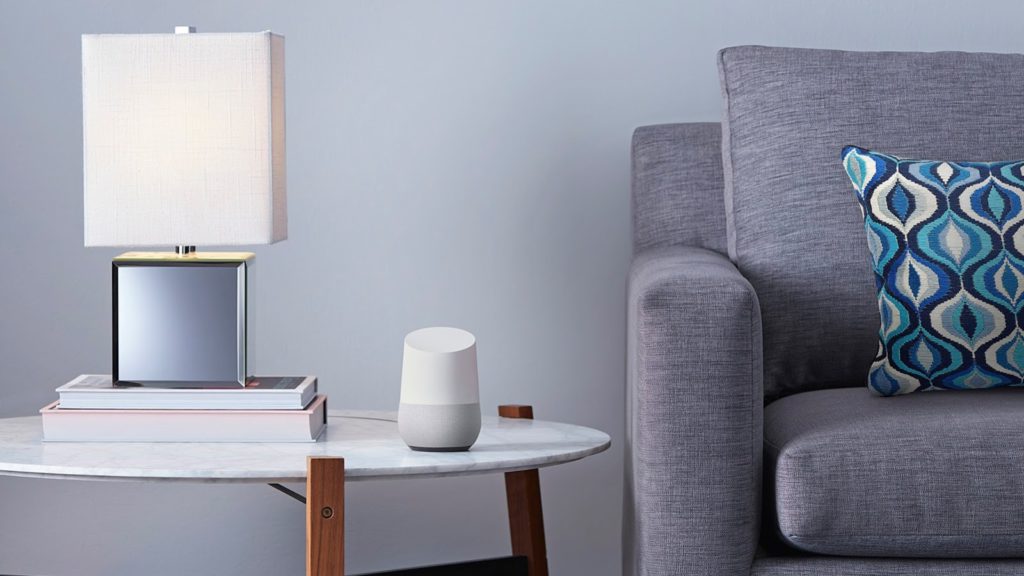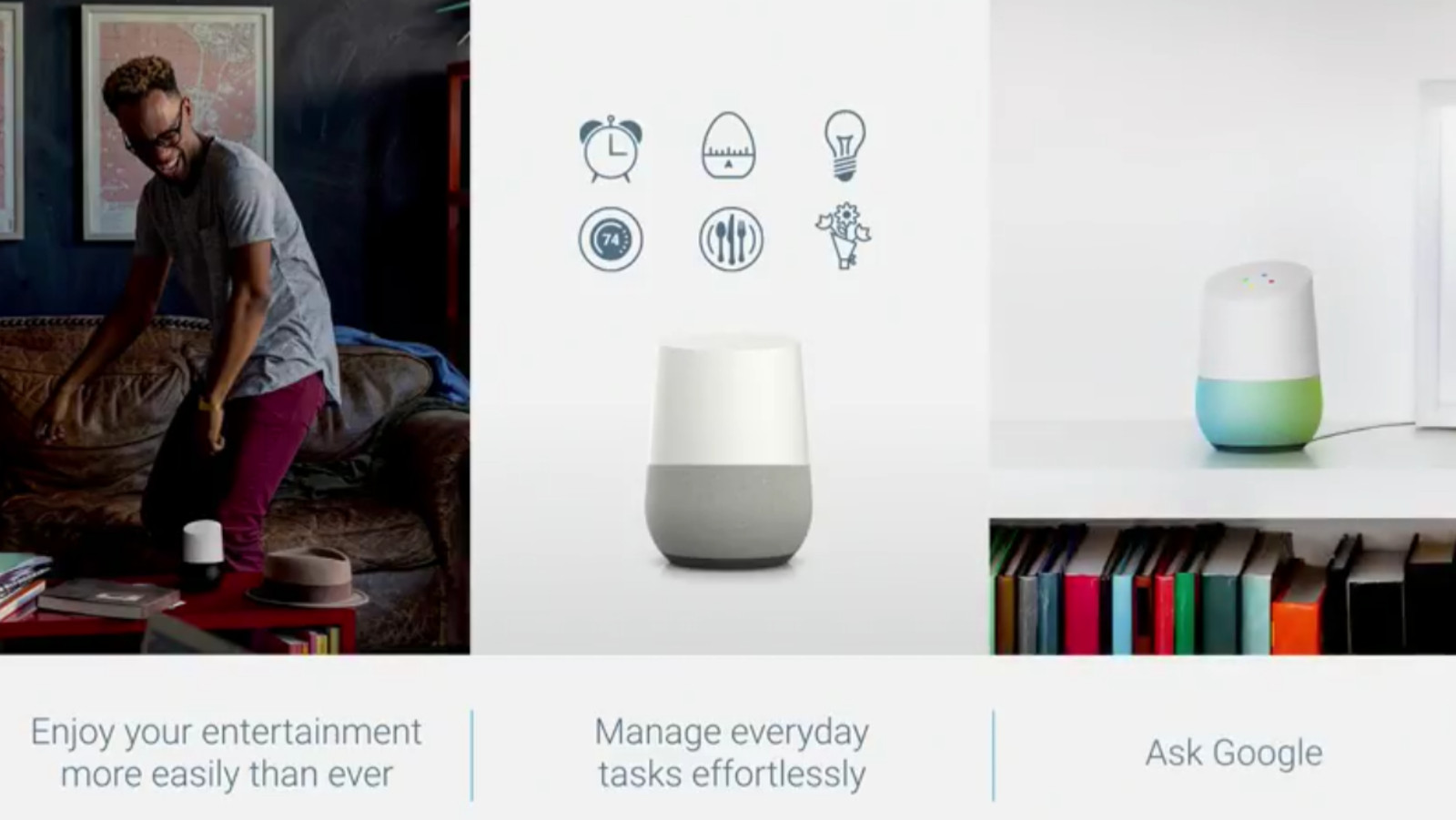Sony launches the WF-1000XM6 in South Africa with upgraded noise cancelling, better call clarity and premium sound. Pricing starts at R7,999.
Google I/O 2016: Google Home, Assistant announced

Be sure to catch all the news, views and analysis of Google I/O 2016 on Gearburn via our portal, and live blog.
The Mountain View giant has announced Google Home at its I/O conference, a take on Amazon’s Echo device.
Much like Echo, Google Home is a little circular speaker, with users giving voice commands to the device to get things done.
For starters, Google Home lets you stream music directly from Google Play, or local music via Android or iPhone casting, the company confirmed.
“Google Home lets you ask Google about anything you want to know,” a Google representative said on-stage, owing to its integrated Search functionality.
Examples given include “how much fat is in an avocado?” and “what was the US population when NASA was established?”.
Other tasks include the ability to set alarms and timers and the ability to create to-do/shopping lists.
The company also revealed that Google Home would be able to “seamlessly” connect to popular smart home systems, including the company’s own Nest devices.

“It will let anyone in the family, kids or adults, have a conversation with Google,” a Google representative said at I/O.
Google Home is set to launch “later this year”, the company said.
Google assistant revealed
The company kicked off the I/O conference by announcing Google Assistant, which effectively wraps up Google Now with much improved language processing and contextual understanding.
Google CEO Sundar Pichai claims Google Assistant is an “order of magnitude” ahead of everyone else [i.e. Siri and Cortana – ed].
The platform also adds some bot-like functionality into the mix, such as the ability to help you book movie tickets.
“Think of it as a conversational assistant. We want users to have an ongoing two-way dialogue with Google,” Pichai said.
Another example cited by Pichai included the ability to stand in front of a monument and ask “who designed this?”. No photo needed, nor mention of the word “monument”.

